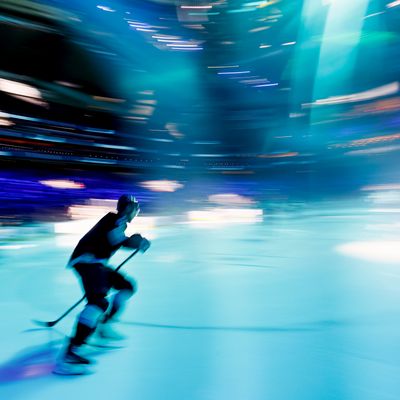
You can make an argument that of all American institutions, professional sports have worried about the pandemic the least but handled it the best. From the beginning, it was obvious sports were going to return as soon as they possibly, legally could. Remember when Georgia governor Brian Kemp opened up tattoo parlors and bowling alleys in April 2020? That hotly debated act led directly to the NBA bubble. The Atlanta Hawks asked the NBA if they could use their team facilities to practice (rather than have players train at random Equinox gyms in the city), which set off a series of events that, three months later, had the NBA recouping more than $1.5 billion in revenue from a summer-long experiment. Was it safe or wise to push sports back so quickly? Probably not. But the leagues were never going to wait around for permission. And they ended up ahead of the pack on everything, completing almost all their seasons (and selling almost all their television inventory) in a time before vaccines — then getting the kind of employee buy-in on COVID shots that remains the envy of any other industry. (Hospitals would kill for their staff to have the vaccination rate of the WNBA.) I wouldn’t say sports led during the pandemic. But they did what they had to do.
Which is why it shouldn’t be surprising that, as the Omicron variant upends our pandemic calculus once more, sports are still a step ahead of society’s response. As the long testing lines in highly vaccinated New York City help illustrate, breakthrough cases are no longer a particularly unusual phenomenon. That’s a problem for sports leagues, which had widely expected to vaccinate themselves out of the pandemic but are suddenly dealing with a dramatic surge in positive cases — resulting in the first cancellations and postponements of games we’ve seen since last winter. Leagues, unlike most workplaces, administer COVID testing constantly, so they’re catching every breakthrough case in a way few other businesses could. But as we are learning, a “positive case” in December 2021 means something very different than it did in July 2020. Sports may be the first public institution to not only acknowledge that, but to do something about it.
After a tumultuous week of frantically rescheduled games, the NFL, NBA, and NHL announced significant changes to their testing protocols. These new rules — especially the NFL’s — are likely a preview of the way most of society will come to think about the pandemic moving forward. Last season, the NFL had been testing all of its players all the time regardless of vaccination status. From here on out, it will test fully vaccinated players only if they’re showing symptoms. (Unvaccinated players like Aaron Rodgers and Lamar Jackson will be swabbed as regularly as they have always been.) In other words, the league responded to a surge in cases not by dramatically expanding its testing program, which it easily could have, but by focusing and clarifying it. This is the new modus operandi. Tests mean cases, and cases mean postponed games. So there’s going to be less testing.
There’s certainly a cynical element to this strategy by the leagues. In a way, it’s reminiscent of those early, ugly days of the pandemic when the former president would say things like, “If we didn’t do any testing, we would have very few cases.” The difference between now and then, of course, is that hundreds of millions people are vaccinated and thus protected against the most severe outcomes from the coronavirus. And sports leagues are composed of healthy, fit, fully vaccinated (and mostly boosted) athletes playing against other healthy, fit, fully vaccinated (and mostly boosted) athletes. This does not entirely eliminate the risk factor of putting on a sporting event. But it certainly makes the risk approach zero, doesn’t it? That’s the NFL’s and NBA’s calculation: Their playing field is a very different place than, say, an assisted-living facility, so different rules should apply. They’ve adjusted the risk calculations.
(The NHL made headlines Monday night by announcing that its schedule was going “on pause,” but the league had already planned to take time off for the holidays before Omicron hit. The number of games postponed by the “pause?” Three. Also, there is only one currently unvaccinated NHL player. No, literally, just one: Red Wings forward Tyler Bertuzzi, whose inoculation-less status is constantly getting him mocked on the ice.)
The logical conclusion of the leagues’ new policy is that a fully vaccinated athlete who has an asymptomatic case of COVID will play in a game. This has surely happened already. It probably happened yesterday. But it’s one thing to suspect as much and another thing for the league to accept it. This may be the only path forward, though. If the leagues test every player every day, they’re going to detect so many positive cases it will be impossible to play — the rest of the season would l look like the past chaotic week did. The leagues are now admitting what most of us are realizing but wary of saying out loud: COVID is just a part of our lives now, and if we don’t learn to live with it, we’re never going to be able to do anything.
This may seem reasonable to you or it may seem reckless; the pandemic has confirmed, if nothing else, that everyone has their own individual risk paradigm. But sports leagues have made it as clear as possible that in an Omicron age, their future depends on making peace with the virus. That future looks increasingly like our own.
More on omicron
- What to Know About the New COVID Booster Shots
- The Dismantling of Hong Kong
- What We Know About All the Omicron Subvariants, Including BA.2.12.1






























